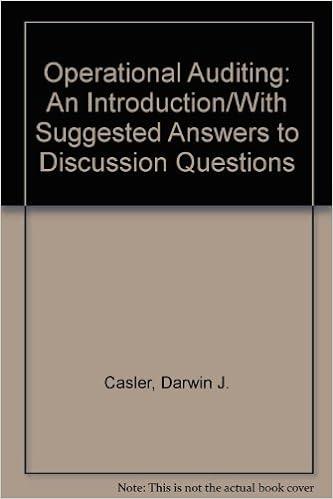
P4-1B VideoPlus, Inc. manufactures two types of DVD players, a deluxe model and a standard model. The deluxe model is a multi-format progressive-scan DVD player with networking capability, Dolby digital, and DTS decoder. The standard model's primary fea- ture is progressive-scan. Annual production is 50,000 units for the deluxe and 20,000 units for the standard. Both products require 2 hours of direct labor for completion. Therefore, total annual direct labor hours are 140,000 [2 hrs. X (20,000 + 50,000)). Expected annual manufac- turing overhead is $980,000. Thus, the predetermined overhead rate is $7 ($980,000 = 140,000) per direct labor hour. The direct materials cost per unit is $42 for the deluxe model and $11 for the standard model. The direct labor cost is $18 per unit for both the deluxe and the standard models. The company's managers identified six activity cost pools and related cost drivers and accumulated overhead by cost pool as follows. Activity Cost Pool Cost Driver Purchasing Orders Receiving Pounds Assembling Number of parts Testing Number of tests Finishing Units Packing and shipping Pounds Estimated Overhead $130,000 30,000 370,000 115,000 140,000 195,000 $980,000 Expected Use of Cost Drivers 400 20,000 74,000 23,000 70,000 80,000 Expected Use of Drivers by Product Standard Deluxe 100 300 4,000 16,000 20,000 54,000 10,000 13,000 20,000 50,000 18,000 62,000 Instructions (a) Under traditional product costing, compute the total unit cost of both products. Prepare a simple comparative schedule of the individual costs by product (similar to Illustration 4-10 on page 158). (b) Under ABC, prepare a schedule showing the computations of the activity-based over- head rates (per cost driver). (c) Prepare a schedule assigning each activity's overhead cost pool to each product based on the use of cost drivers. (Include a computation of overhead cost per unit, round- ing to the nearest cent.) (d) Compute the total cost per unit for each product under ABC. (e) Classify each of the activities as a value-added activity or a non-value-added activity. (f) Comment on (1) the comparative overhead cost per unit for the two products under ABC, and (2) the comparative total costs per unit under traditional costing and ABC







